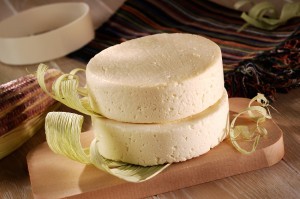 Listeria poses a huge risk for all pregnant women. The foodborne bacteria can cause an infection that triggers miscarriage, stillbirth, premature birth and infection in newborns even if the expectant mother only experienced mild flu-like symptoms.
Listeria poses a huge risk for all pregnant women. The foodborne bacteria can cause an infection that triggers miscarriage, stillbirth, premature birth and infection in newborns even if the expectant mother only experienced mild flu-like symptoms.
But Listeria poses an elevated risk for Hispanic pregnant women who are 24 times more likely than the general population to contract the infection. A major factor in the increased risk is the consumption of queso fresco and other soft cheeses.
In 2014, two multistate Listeria outbreaks were linked to soft-cheeses. All of those sickened were Hispanic. Some of them were pregnant women. Some were newborns. And some of them died.
In October 2014, the CDC announced an outbreak linked to Oasis cheeses that killed one person in Tennessee and sickened two others in New York and Texas. One case was related to a pregnancy and was diagnosed in a newborn. The two surviving patients reported consuming quesito casero before they became ill.
In March, an outbreak linked to Roos Cheese sickened eight people in Maryland and California. Three of the victims were newborns, two mothers of the newborns were also sickened. One person died.
One way to reduce the risk of Listeria during pregnancy is avoid soft cheese such as queso fresco, brie, feta, camenbert and blue-veined cheeses.




